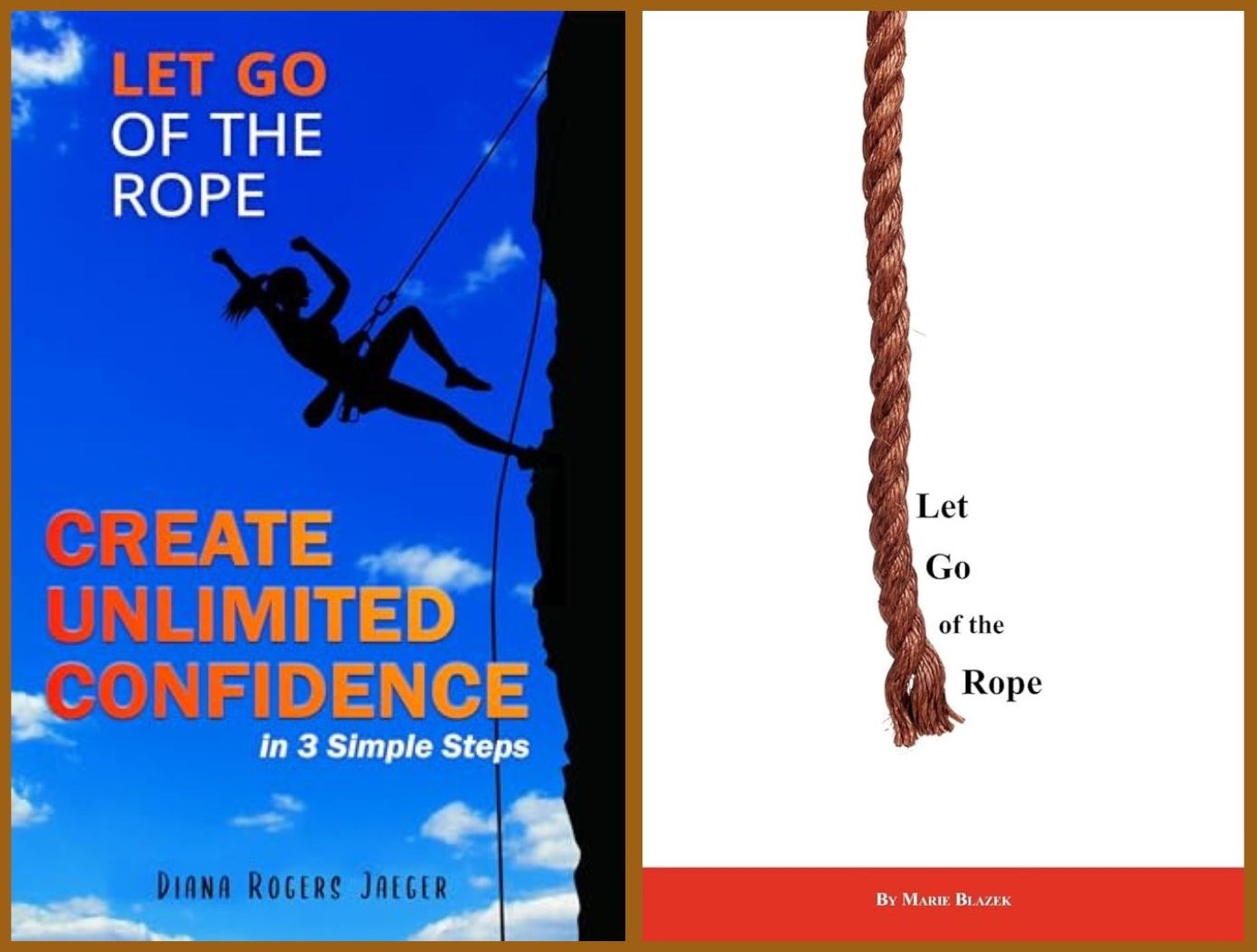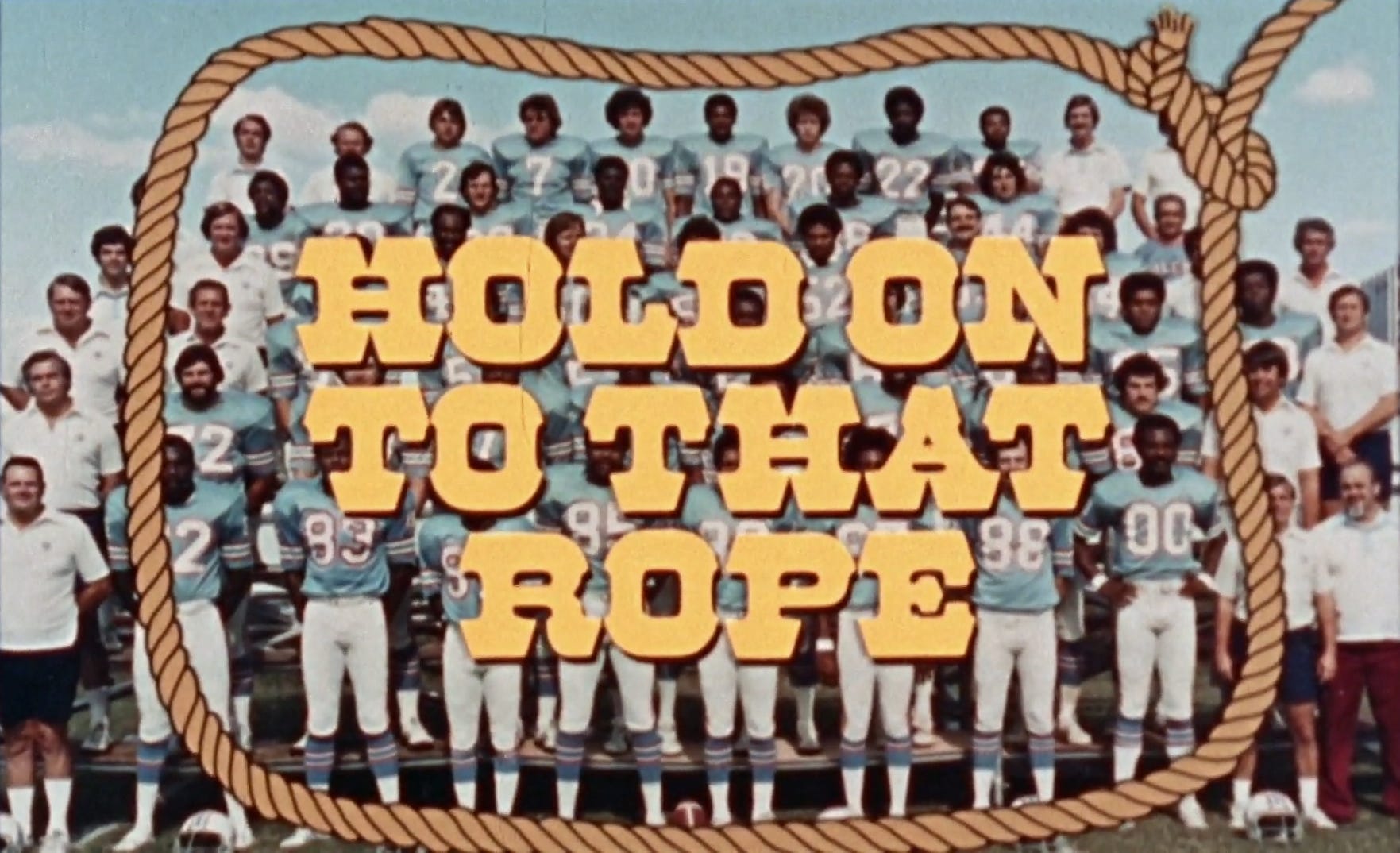NBA Coaches Love to Say, "Don't Let Go of the Rope!" — But Is That Always Good Advice?
"Let go of the rope" holds opposite meanings in sports and everyday life
Steve Kerr says it. Doc Rivers says it.
Tom Thibodeau … Rick Carlisle … Tyronn Lue, too.
Joe Mazzulla created controversy when he said it a year ago at the Eastern Conference finals — just weeks after Celtics star wing Jaylen Brown made news by saying, “It just seemed like for whatever reason today, we let go of the rope completely.”
Steph Curry says it, and so does Draymond Green.
Michael Malone said it this month. Jason Kidd has been saying it for decades. Frank Vogel and Darvin Ham both said it before the Lakers fired them.
Erik Spoelstra says it so often that it’s officially engraved upon Heat Culture.
When an NBA coach or player says his team “let go of the rope,” it implies the team quit — a cardinal sin in sports.
But to many outside of sports, the phrase has a completely different meaning:
It’s good to let go of the rope.
So, how did this phrase come to have two nearly opposite meanings?
Bum’s Rope
Bum Phillips, the legendary football coach, was a quip machine so prolific he ranked No. 6 among the “100 Greatest Characters” in NFL history.
Many of Bum’s quotes were downright hilarious, but of all his wit and wisdom, one inspirational saying might outlast the rest:
Hold on to the rope.
Houston Oilers quarterback Dan Pastorini told Sports Illustrated in 1975:
Bum's biggest thing is saying that if you were hanging off a cliff on a rope, you'd want to make sure you had a friend up there holding the other end. That's our slogan — hold on to the rope and don't let our people down.
Bum made sure the rope was more than a metaphor. Before a big November 1975 game against the powerful Pittsburgh Steelers, the first-year coach arranged for every Oilers fan to have a piece of rope to wave — Bum’s Ropes, they were called.
And the popular “Houston Oilers Fight Song” included this verse:
We've got the offense.
We've got the defense.
We give the other team no hope.
'Cause we're the Houston Oilers, Houston Oilers,
You know we're gonna hold the rope.
Basketball coaches grab the rope
Bum’s rope quickly wove its way into coaching culture.
As covered in the HBO series Winning Time: The Rise of the Lakers Dynasty, Paul Westhead became assistant coach for the Los Angeles Lakers before the 1979-80 season, working for new coach Jack McKinney.
Westhead later wrote:1
One of my first tasks was to locate a motivational film for training camp. I had used a Houston Oilers film with my La Salle team, and Jack asked me to track it down. I contacted NFL Films, and they told me we could have the film for a $150 rental. Because of the squeeze being put on Jack by Lakers officials, he told me to cancel our order. I pleaded with him to get the film, because Bum Phillips did a great job of showing how teamwork leads to a successful program. The theme was “Don’t let go of the rope,” and it showed how, as with mountain climbers, everyone on the team is dependent on others for success. Embarrassed, I canceled our order, and I was a bit disturbed that we couldn’t swing such a small transaction.
When McKinney was seriously injured in a bike crash about a month into the season, Westhead became head coach — and the Lakers won the championship. But early in the 1981-82 season, Lakers star Magic Johnson became disenchanted, so Lakers owner Jerry Buss fired Westhead.
Pat Riley replaced Westhead — who had hired Riley as assistant coach — and led the Lakers to four more NBA titles while becoming the league’s greatest progenitor of slogans and aphorisms.
One exhortation that Riley carried with him from Los Angeles to New York to Miami: “Don’t let go of the rope.” During his last season as an NBA coach, Riley told Dallas Morning News reporter David Moore:
We’ve got to be stubborn with our spirit and stubborn with our optimism and bounce back. This next month is very important. You can’t let go of the rope and we’re not going to.
(Narrator: They did, finishing 15-67.)
Riley’s coaching tree is a fruitful one, and his protégés picked up the thread, including Doc Rivers (who played for Riley in New York), both Jeff and Stan Van Gundy, and Erik Spoelstra.
In his 16 years as Miami’s head coach — working for Riley — Spoelstra has said “don’t let go of the rope” so often that it’s now included among the many Spoisms that have defined Heat Culture and cracked up his players.
In his 2014 Miami Herald column on Spo’s sayings, reporter Barry Jackson quoted Heat superstar Dwyane Wade:
Wade’s favorite? “’Embrace the moment’ and ‘We’ve got to own it.’ And ‘Do not let go of the rope’ is funny.”
Heat forward Shane Battier added, regarding Spoisms: “It's rare they don't amuse guys. It's rare they don't elicit laughter at some point.”
But while they’re laughing, maybe the players grab on anyway. In January, Miami center Bam Adebayo, told reporters what the Heat’s stirring run to the 2023 NBA Finals taught him:
I learned a valuable lesson last year. Don’t let go of the rope because you never know what’s on the other side. We could have let go of the rope after the first loss in the play-in and been like this is our season. But we didn’t. Because of that, we made a run to the Finals that was so unexpected. So for us, it’s not letting go of the rope.
So it’s no surprise Miami codified Heat Culture in 2023-24 with new uniforms, a new floor, and an old motto:
When letting go of the rope is good
As I started gathering string for this article, I assumed everyone used the phrase in the same way. But I had to let go of that notion.
In fact, the earliest popular meaning of the phrase appears to be “letting go of the rope” as an act of faith — particularly religious faith.2
Here’s an oft-repeated illustration from the 19th century, found in books as early as 1860.

These days, all kinds of people encourage us to “let go of the rope” — social workers, life coaches, clinicians, spiritual leaders.
When life is hard, you are afraid, and the feeling of aloneness threatens to overwhelm, “Let go of the rope.”
Dropping the rope is us letting go of trying to control unwanted thoughts and feelings and instead use that energy to focus on living a life of meaning.
So whether we want to reduce negative stress; break through a fear of success, failure, or rejection; heal ourselves; improve our athletic ability; raise our self-confidence; or deal with a myriad of other issues, the only way to accomplish it is to let go of the rope, let go of that baggage.

It’s a theme that has inspired songwriters, too — Spotify has at least eight songs titled “Let Go of the Rope,” “Let Go That Rope,” or “Letting Go of the Rope.”
Who wins the tug-of-war?
We know how NBA coaches and players use the phrase. But is that enough to pull the rest of the culture to their side?
To get beyond the Bum-Spo timeline of sports slogans and find out what this metaphor means more broadly, I turned to Google Gemini — an information source that has devoured and digested the entire Internet:
The phrase "let go of the rope" is a metaphor for surrendering control and releasing attachments to things that are causing stress, anxiety, or fear. It suggests that holding onto these things tightly, like a rope, is ultimately counterproductive and prevents us from finding peace and happiness.
The phrase "let go of the rope" is often used in spiritual and self-help contexts, but it can also be applied to everyday situations where we are struggling to control or let go of something. It is a reminder that sometimes the most empowering thing we can do is to surrender control and trust in the process of life.
Hold on … sometimes
This article is a bit of a rope trick … because we are not required to see these two main meanings as opposed. It’s a question of context.
In each case, the rope represents a powerful force.
As NBA coaches see it, you must contribute to that collective force. During a five-game losing streak in LeBron James’ first Miami season, Spoelstra said, “Don’t. Let. Go. Of. The. Rope.” to remind his team — and everyone else — how difficult it is to win. For NBA coaches, letting go is tantamount to losing. It’s quitting.
Life coaches take a different view: It’s essential to “quit” or let go of the rope — the force — that prevents you from thriving. For balance and a healthy outcome, one must drop the rope and find a force stronger or more important — faith, courage, inner peace, a significant relationship.
After all, winning in sports — a zero-sum game — is not the same as living a good life.
Hold the rope!
To tie this piece together, let’s yield the floor to football coach Joe Headen. (Video here.)

From The Speed Game: My Fast Times in Basketball, by Paul Westhead (University of Nebraska Press, 2020).
In the 19th century, a meaning similar to that expounded by NBA coaches was also taking hold. In 1868, a prominent minister spoke of “the rope let down from Heaven … by faith, as with both hands, we took hold of that rope … and all opponents could not remove it, nor make us let go of the rope.” The earliest such reference I found was in 1843, as an evangelist sought financial support.






social work shout out 📣🫶🏼